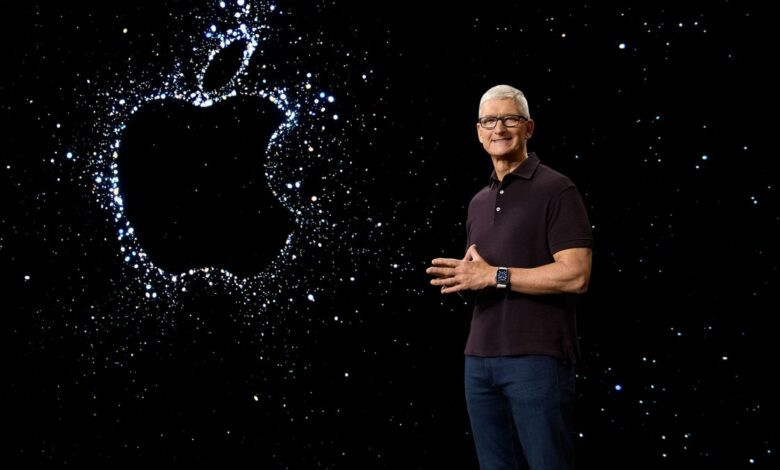Apple sued by DOJ over iPhone monopoly claims

The United States Department of Justice this morning filed a lawsuit accusing Apple of monopolistic smartphone practices. Seventeen state attorneys general joined the federal department in the massive suit.
“Consumers should not have to pay higher prices because companies violate the antitrust laws,” U.S. Attorney General Merrick Garland said in a statement issued with the news. “If left unchallenged, Apple will only continue to strengthen its smartphone monopoly.”
Thursday’s suit cites Apple’s longstanding ecosystem play as evidence of anticompetitive practices, including the blue and green bubble colors used by Messages to distinguish iOS from Android users.
In particular, the suit is focused on the iPhone maker’s share of the premium smartphone sector. It accuses the company of increasing friction for those looking to switch to the competition. That includes things like “contractual restrictions” and the vetting process the company has long employed with its App Store.
Regulators are citing the suppression of five categories: “super apps” (which combine a broad range of functionality in a single application), cloud streaming gaming apps, messaging apps, digital wallets and smartwatch cross platform compatibility. The last bit is a dig at the company’s longstanding practice of ensuring that certain features only work correctly when paired with other Apple devices.
“Rather than respond to competitive threats by offering lower smartphone prices to consumers or better monetization for developers,” the suit notes, “Apple would meet competitive threats by imposing a series of shapeshifting rules and restrictions in its App Store guidelines and developer agreements that would allow Apple to extract higher fees, thwart innovation, offer a less secure or degraded user experience, and throttle competitive alternatives. It has deployed this playbook across many technologies, products, and services, including super apps, text messaging, smartwatches, and digital wallets, among many others.”
The complaint goes on to accuse Apple of “stifling” the competitions, adding, “Apple reinforces the moat around its smartphone monopoly not by making its products more attractive to users, but by discouraging innovation that threatens Apple’s smartphone monopoly.”
The complaint draws a parallel to the DOJ’s antitrust suit against Microsoft in the 1990s, which found Apple and then-CEO Steve Jobs on the opposite end of things. It goes on to accuse the company of imposing even stricter structures than Windows developer.
“In 1998, Apple co-founder Steve Jobs criticized Microsoft’s monopoly and ‘dirty tactics’ in operating systems to target Apple, which prompted the company ‘to go to the Department of Justice’ in hopes of getting Microsoft ‘to play fair,’” the DOJ notes. “But even at that time, Apple did not face the same types of restrictions it imposes on third parties today; Apple users could use their iPod with a Windows computer, and Microsoft did not charge Apple a 30% fee for each song downloaded from Apple’s iTunes store. Similarly, when Apple brought the iPhone to market in 2007, it benefited from competition among component makers and wireless carriers.”
Apple swiftly countered by arguing that — if successful — such a suit would inhibit its ability to compete in the crowded smartphone market. In a statement provided to TechCrunch, the company notes,
At Apple, we innovate every day to make technology people love—designing products that work seamlessly together, protect people’s privacy and security, and create a magical experience for our users. This lawsuit threatens who we are and the principles that set Apple products apart in fiercely competitive markets. If successful, it would hinder our ability to create the kind of technology people expect from Apple—where hardware, software, and services intersect. It would also set a dangerous precedent, empowering government to take a heavy hand in designing people’s technology. We believe this lawsuit is wrong on the facts and the law, and we will vigorously defend against it.
The suit follows a good bit of international regulatory scrutiny in markets like the European Union, which has targeted the company over antitrust concerns. At the same time, Apple has also been embroiled in lawsuits from Epic Games, challenging its App Store revenue practices. The Biden administration, meanwhile, has promised to take more aggressive action against anticompetitive practices.
Attorneys general from New Jersey, Arizona, California, Connecticut, Maine, Michigan, Minnesota, New Hampshire, New York, North Dakota, Oklahoma, Oregon, Tennesse, Vermont, Wisconsin and the District of Columbia participated in Thursday’s filing.
Source link




